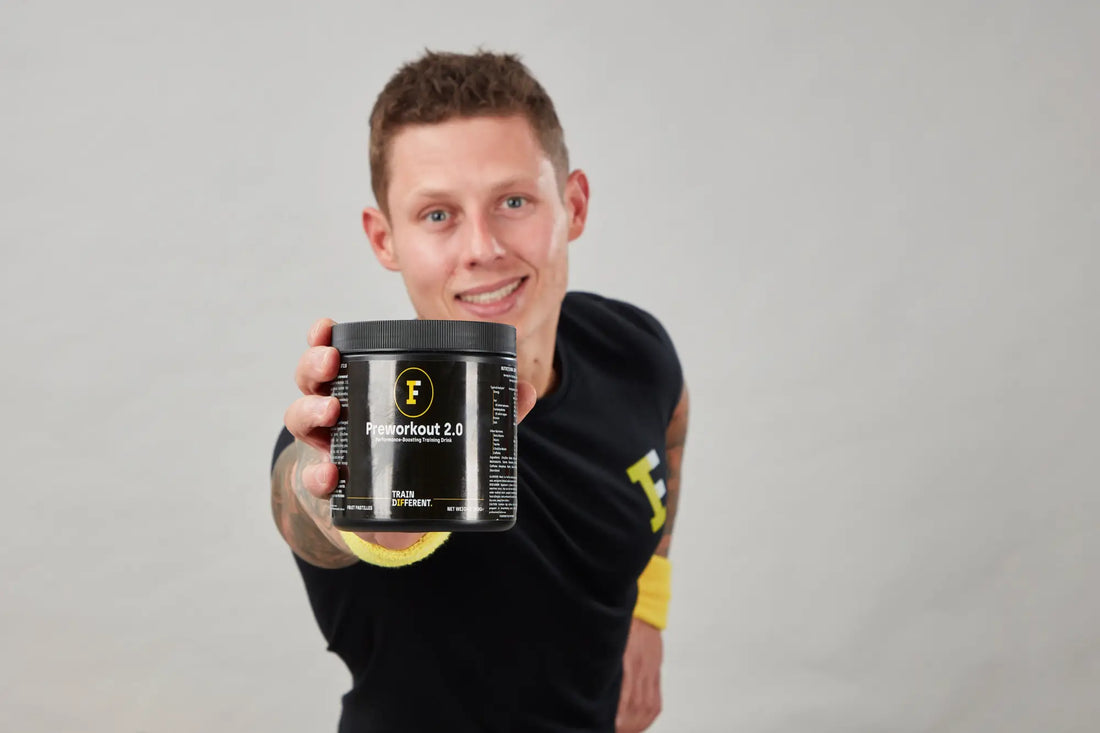
Coffee vs. Pre-Workout: Which Fuel Is Right for Your Workout?
Share
Coffee vs. Pre-Workout: Which Fuel Is Right for Your Workout?
When it comes to choosing the best pre-workout fuel, many athletes and fitness enthusiasts debate whether coffee or pre-workout supplements deliver superior results. Both options can increase energy and enhance workout performance, but they offer distinct benefits and drawbacks. Understanding these differences can help you select the right approach to maximize your efforts in the gym and support your fitness goals.
The Case for Coffee
Coffee remains a staple for its natural dose of caffeine, which is well-known for boosting alertness and promoting mental clarity. As a pre-workout fuel, coffee offers several compelling advantages. The caffeine in coffee acts as a stimulant, energizing the central nervous system so you feel more focused and ready to tackle tough workouts. For many, this translates to increased motivation and mental drive during both cardio and strength-training sessions.
Increased Energy and Focus: Beyond waking you up, coffee’s caffeine ramps up your mental alertness, enhancing your ability to concentrate on form and technique, which can help you make every rep count.
Enhanced Endurance: Research supports caffeine’s role in heightening endurance by making strenuous exercise feel easier and pushing back the onset of fatigue. This can be particularly beneficial for runners, cyclists, and anyone training for extended durations.
Improved Fat Burning: Coffee is often favored for its metabolic benefits. It stimulates thermogenesis, helping your body burn more calories and fat both during and after your workout, which can aid in weight management and lean muscle preservation.
Cost-Effective: Compared to specialized supplements, regular brewed coffee is an accessible and budget-friendly way to get your pre-workout boost.
However, it’s important to consider some limitations when using coffee as your go-to pre-workout fuel:
Potential for Jitters and Anxiety: Individuals sensitive to caffeine may experience side effects like jitteriness or anxiety, which could negatively impact focus and stability during exercise.
Sleep Disruption: Because caffeine can linger in your system for hours, late-day consumption might interfere with sleep quality and recovery.
Dependence: Habitual use of coffee can lead to tolerance, requiring higher doses over time for the same effect, and withdrawal symptoms if you skip your usual cup.
The Case for Pre-Workout Supplements
Pre-workout supplements are engineered specifically to optimize workout performance and target multiple aspects of physical and mental function. Unlike coffee, which primarily delivers caffeine, these supplements often contain a blend of ingredients, each selected for a specific fitness benefit. Depending on the formulation, you might find compounds such as creatine for strength and muscle power, beta-alanine for endurance, branched-chain amino acids (BCAAs) for muscle recovery, and nootropics for cognitive enhancement.
Targeted Formula: Pre-workout supplements offer carefully measured blends designed to match various workout objectives, whether you’re aiming for muscle growth, fat burning, increased stamina, or sharper focus.
Faster Absorption: Many formulas use highly bioavailable ingredients. This means your body absorbs them efficiently, providing a rapid and noticeable surge of energy right when you need it most.
Increased Muscle Strength and Power: Popular ingredients like creatine have been shown to enhance muscle performance, leading to better lifts and greater results over time.
Improved Mental Focus: In addition to stimulants, some products incorporate ingredients designed to heighten concentration, supporting high-performance training sessions that require both brain and brawn.
Yet, as with any supplement, there are potential drawbacks to consider:
Potential for Side Effects: Some individuals may experience tingling, flushing, or digestive discomfort due to ingredients like beta-alanine and niacin. Monitoring your body’s response is important for comfortable use.
Costly: While effective, high-quality pre-workout supplements often come with a higher price tag compared to everyday coffee.
Risk of Overconsumption: Following dosage guidelines is essential; taking too much can lead to negative side effects ranging from overstimulation to cardiovascular stress.
Coffee vs. Pre-Workout: The Verdict
Choosing the right pre-workout fuel boils down to your personal preferences, sensitivity to ingredients, workout style, and overall fitness ambitions. If you’re seeking a simple, cost-effective energy boost with proven fat burning properties, coffee may fit your needs. Those looking for a specially formulated combination to amplify workout performance and target factors like muscle growth, endurance, and focus might gravitate toward a comprehensive pre-workout supplement.
Sensitivity to Caffeine: Match your pre-workout choice to your own tolerance, selecting lower-caffeine options as needed to prevent discomfort and promote consistent results.
Workout Intensity and Duration: High-intensity or extended training sessions may warrant pre-workout supplements that supply a spectrum of performance-enhancing nutrients.
Budget: If cost is a primary concern, coffee is an efficient and accessible option.
Taste and Convenience: Enjoyment and ease of use matter—choose what you’ll look forward to incorporating into your routine.
Experimenting with both choices—coffee and pre-workout supplements—can help you understand what optimally supports your energy, focus, and results in the gym. Monitor how you feel, your workout performance, and recovery, then adjust your pre-workout fuel based on those observations. Above all, prioritize listening to your body so you can safely achieve your fitness objectives and maximize every session.